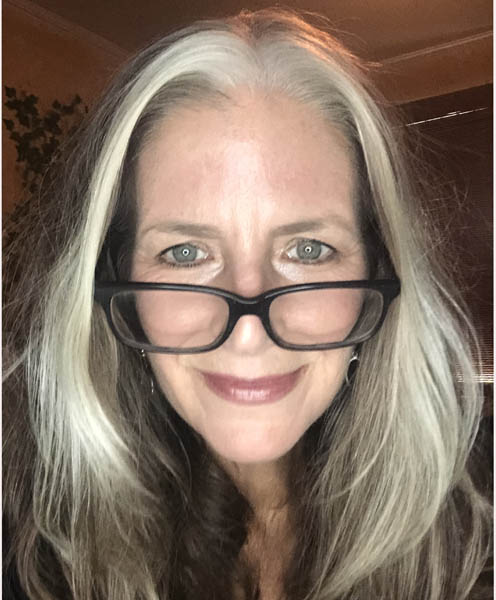While futzing around with some plants in my yard recently, I had a metaphorical moment.
(My family wishes I would have fewer metaphorical moments and more yard work moments, but that’s another column.)
I’d noticed that the row of impatiens in my window box wasn’t looking so hot. Installed well over a month ago, the plants were still quite small, with lots of space between them, growing in tight little clumps instead of spreading out and merging into a lavish tangle of orangey-red fabulousness, like they normally do. In short, the plants were growing up, but not out.
I spotted the problem right away; I hadn’t set them deep enough in the soil. Or maybe I had, but I hadn’t added enough extra soil around and between them after planting. Either way, the result was the same. The soil had settled, and the root balls were poking up over the surface; so the plants had plenty of room to burrow down, but there was no way for them to branch out – to spread sideways near the top.
I think that was the problem, anyway. I am the laziest, least-informed gardener of all time – I typically just wing it – but this seemed like a no-brainer. I have now attempted to address the issue – adding more soil around and between the plants – so we shall see.
Anyhoo. While grubbing around in the dirt, I couldn’t help thinking about the United States of America. Yep, now comes the metaphorical moment. Bear with me.
In this row of carefully divided, steadfastly separated plants – which seemed determined to “stay in their lanes” and were, as a result, not flourishing as they had in seasons past – I saw a picture of the American people in this Year of Our Lord 2021. As I said above, the plants were growing up, not out, but they weren’t even as tall as they normally are by now. And there weren’t nearly as many orangey-red flowers.
My window box was grim. Dull. It made me sad. My plants were failing to thrive, and I couldn’t help thinking of my country.
Our current failure to thrive, I think, is similar. More and more Americans are sinking themselves deep into their respective “plots” – their political tribes, their trusted media sources, their favored narratives – where they have increasingly less contact with those in the other “plots.”
There is simply not enough shared soil – not enough common ground – between us anymore. We have different beliefs and value systems, and they barely overlap. We even have different origin stories; our mutual history no longer feels “mutual,” viewed, as it is, through our different lenses with different focal points. Without this common ground – this shared soil – it’s much harder now to reach out toward one another. It’s harder to stretch beyond our comfort zones, to bridge the spaces between us. It’s harder to mingle and blend and bloom.
And the garden that is our country is far less beautiful for it. And far less healthy.
At least that’s how it feels to someone who spends much of her time immersed in media – both social and otherwise – where the loudest, most entrenched and self-righteous voices seem to drown out the possibility of real communication.
But fortunately, there are other voices out there. And they’re literally voices. I’m talking about podcasts.
Returning to the plant metaphor – yes, I will beat it to a bloody pulp – I tend to be a late bloomer. Always last to the table. Got married at 35. Had a baby at 36. Got religion at 42. Began blogging when blogs were dying. Joined Facebook years after everybody else. Started watching ‘Schitts Creek,’ like, a week ago.
And now, about a decade into their heyday, I’ve “discovered” podcasts. It’s been life changing.
Podcasters have actual grown-up conversations, y’all! With nuance and depth and honesty! They interview people who don’t share their views! And treat those people with respect! They go deepandwide – with curiosity andcourtesy – and most of them do it with panache. I regret that it took me so long to discover the wondrous universe living inside my AirPods – so many wasted years – but now that I’ve found it, I’m all in.
(And I have to give credit where credit is due, so thanks, Covid 19 pandemic. Thanks for forcing me to stay away from the gym, which forced me to get serious about walking as exercise, which forced me to walk faster and much farther than before, which forced me to address the boredom issue, which forced me to get past my Luddite lallygagging and figure out what this podcast stuff was all about.)
Here’s just a sampling of some recent conversations to which I’ve been privy:
• Psychologist Jordan B. Peterson and Bishop Robert Barron discussing the bridge between religion and biology, the nature of good, how the limits of the Bible can be useful, why young people are leaving the Catholic church, the hunger for serious conversation on religious topics, and more.
• Quillette founder Claire Lehmann talking to author and activist Michael Shellenberger about how environmental alarmism and ideological blind spots often prevent us from having a rational discussion about the best way to address climate change while growing national economies.
• Evolutionary biologist and atheist Bret Weinstein chatting with Muslim scholar/author/founder of the Moral Courage Project, Irshad Manji, about Trump outrage, the tragedy of labels, social media and fear, re-segregation in American schools, moral courage, the spiritual void in modern times, the surprising absence of racism in the American heartland, and so much more.
Weinstein’s podcast – called Dark Horse – is one my favorites. When he’s not interviewing compelling guests like Irshad Manji, he’s bantering with his brilliant wife, Heather Heying – also an evolutionary biologist – about everything from lizards and birds to the ongoing riots in Portland, where the couple make their home. Their 17-year-old son Zach is their producer. The podcast is always warm, funny, and full of nutritious food for thought.
Weinstein recently said something about our current state of affairs that resonated with me so deeply, I had to run home and jot it down. Talking about his politics – and American politics in general – this man who calls himself a “left-libertarian” said, “I’m a liberal who wants to live in a society that’s so good I get to be a conservative.”
Arguing for the absolute necessity of both liberals and conservatives, he continued: “You have a dynamic tension between the instinct toward progress, to make things better – which, if left unopposed always treads into territory where it creates unintended consequences and does harm – and the impulse to preserve what functions, which if unopposed becomes stingy and stifling and doesn’t accomplish lots of things that could be accomplished. So what you want is a force pushing to make things better and a force holding its feet to the fire, making sure it doesn’t propose dumb things that get out of control. It’s the tension between those two things that makes a system work, and my sense is that anybody – on either side – who thinks we’d be better off if the other side disappeared has already told us they don’t understand anything about governance, and they can be safely ignored.”
What impresses me most about the Weinsteins – and all my favorite podcasters – is their genuine curiosity, their enthusiasm for diversity, and their graciousness toward people very unlike themselves. They go deep, but they also go wide, and it makes all the difference. By reaching beyond their comfort zones, and ours, they help bridge those spaces between “us and them” – where we once shared common ground, but not so much anymore – so we can all find a way to thrive. Together. What it feels like is hope.
Now, if only the pundits and politicians would get the memo.







